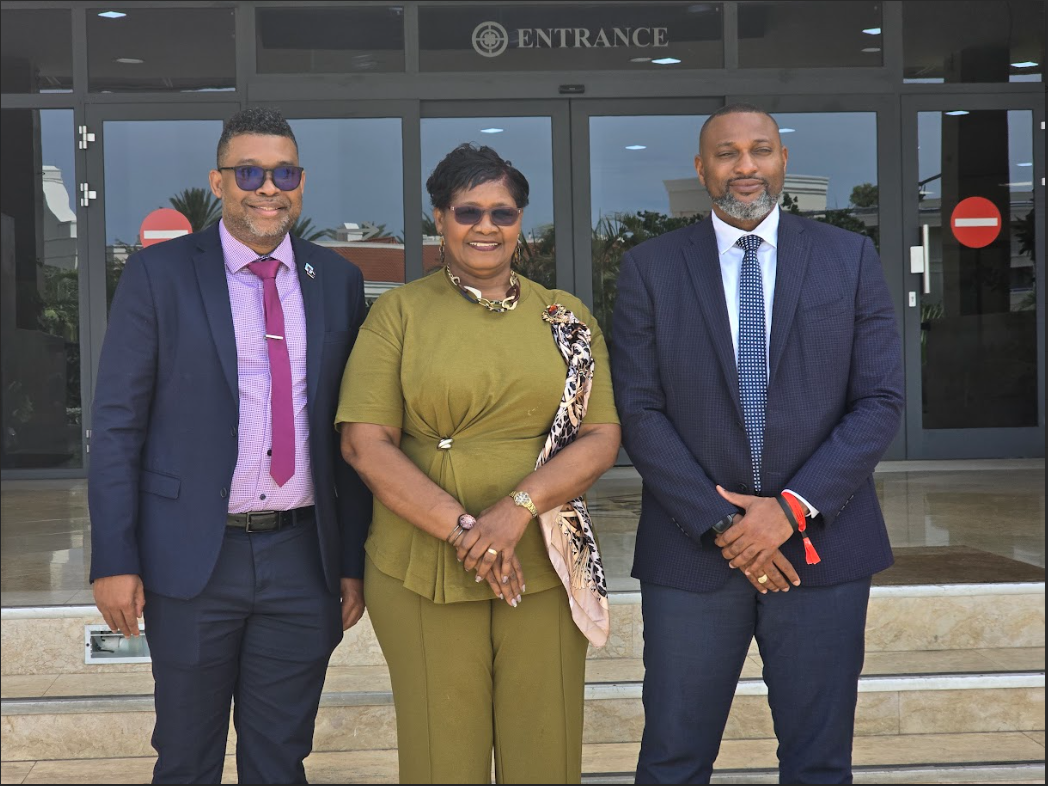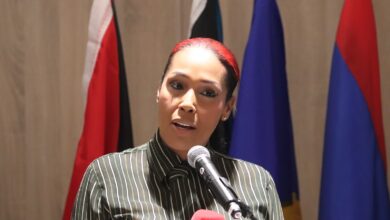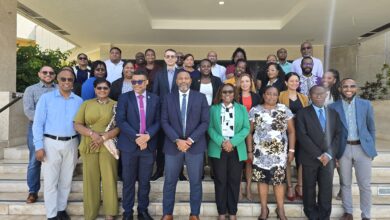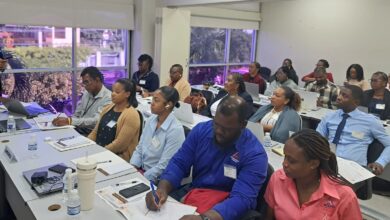Helen Royer, Director of Human Development at the CARICOM Secretariat, emphasised the need for stronger collaboration between educational planners and national statistics officers at a technical dialogue convened during the 34th Meeting of the CARICOM Advisory Group on Statistics on 24 October 2025. She described this partnership as transformative, noting its potential to improve the accuracy and relevance of education data, strengthen policy-making, and reshape how data is collected and used to build more inclusive and resilient education systems.
Royer commended the AGS for its pioneering work in promoting data-driven decision-making across the Region. She framed the Dialogue as a key step toward deeper regional unity, aligning with CARICOM’s Strategic Plan for 2022–2030 while highlighting the importance of integrating statistical expertise into educational planning to support the implementation of the CARICOM Human Resource Development 2030 Strategy.
Please read her complete remarks below:
Let me begin by commending the Advisory Group on Statistics on the exemplary and pioneering work that you have been doing to advance the use of data for decision-making in the CARICOM region.
I am thrilled to be joining you in your 34th Meeting, and I want to place on record the Secretariat’s appreciation of the warm welcome that we have received from our friends and colleagues in Curacao.
I also want to acknowledge the efforts of the technical staff in the CARICOM Secretariat who worked to make this Meeting possible. Director Brizan, it was heartwarming to see your enthusiastic support for this Technical Dialogue when it was first proposed. I, therefore, commend the teams from the CARICOM Secretariat’s Human Resource Development and the Regional Statistics Programmes in executing this collaborative activity.
As I reflect on the rich discussions the education representatives had yesterday and the optimism that has propelled us into today’s discussions, I strongly believe that we are at a critical moment in educational planning in the region.
If this moment is handled well, it could represent an inflection point in how we approach data collection, handling and usage in educational planning. Let us, therefore, make an effort to ensure that our discussions today are rich, meaningful and solutions-oriented.
Today’s Dialogue is a concrete manifestation of the normative principle of Deeper Levels of CARICOM Unity, outlined in the CARICOM Secretariat’s Strategic Plan for 2022 to 2030.
Through this principle, the Secretariat is keen on identifying and supporting collaborative and cohesive approaches by seizing the opportunities to convert complementary activities into synergistic collaboration.
This technical dialogue between educational planning officers and national statistics officers is built on a shared commitment to promote the use of data in decision making – another idea embedded in the Secretariat’s Strategic Plan. Educational data is critical to the implementation of the CARICOM Human Resource Development 2030 Strategy.
Over the years, the Secretariat has made efforts to strengthen the education data ecosystem. At the Meeting of Education Ministers in 2024, for example, it was agreed that a generic statistical business process model should be developed for education data and that data integration should be prioritized.
These are critical areas in which this collaboration between national statistics officers and educational planners can be particularly useful. National statistics officers bring technical expertise in data collection, analysis, and quality assurance, while educational planners provide contextual understanding of policy priorities, resource allocation, and implementation challenges.
By working together, both groups can ensure that education data is accurate, timely, and aligned with national development goals. This partnership supports evidence-based planning, helps monitor progress toward education targets, and identifies gaps in access, quality, and equity.
Ultimately, this Technical Dialogue serves to enhance the effectiveness of education policies and ensures that decisions are grounded in reliable data, leading to more inclusive and resilient education systems.
I, therefore, look forward to the results of this discussion today and I am excited about the transformation in educational planning that it will catalyse.






